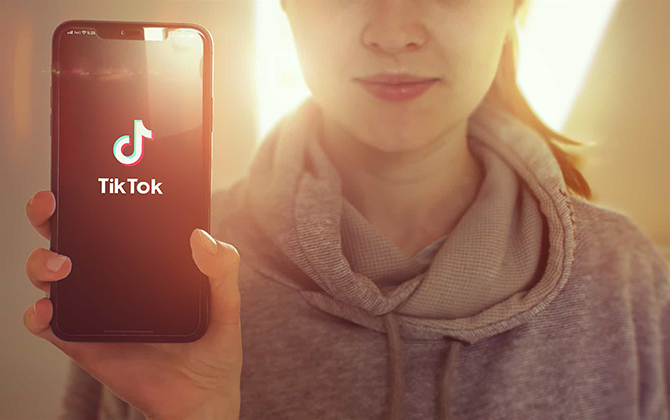For some time now, mental health specialists from different countries have shown their concern and surprise at an event of which there was no news. The number of consultations with these professionals has increased considerably, especially since the pandemic began. Most of the consultations they come across are from young patients presenting with Tourette syndrome.
After many investigations to find the cause of the phenomenon it has been discovered that it was not actually Tourette who suffered. But what happens to them then? Well, oddly enough and unbelievable, patients have been diagnosed with the TikTok Tic, a new alteration produced by social networks.
To show it off, some of the best TikTokers have recorded themselves inadvertently cursing, slapping each other, making clapping sounds, and more. Other Tiktokers do the same, but without suffering it, they only do it as a representation to entertain users, sad but true. Together, these videos have been viewed more than 5 billion times.
These involuntary sounds, gestures and violent and continuous movements have been given the unofficial name of TikTok tic. Indeed, that name has been given in allusion to the famous social network, whose use is very widespread among the youngest. At the moment it is not something excessively worrying, but the medical community has already raised the alarm. According to an article in The Wall Street Journal, experts from pediatric hospitals in various countries have concluded that they all had TikTok in common.
At the Sant Joan de Déu Hospital in Barcelona, a dozen cases have been reported since the pandemic began. They assure that perhaps they do not seem many, but they have never reported so many.
What are TikTok tics?
The first thing to understand is what is Gilles de la Tourette syndrome? This syndrome is characterized by repetitive movements or involuntary sounds, known as tics, which cannot be easily controlled. The average age of onset of tics is 6 years, although they can occur between 2 and 15 years. Males are usually more likely to develop it. Unfortunately it is a disease that has no cure. However, in many cases no treatment is necessary and the tics lessen after age 10
The cause of it is unknown for sure, but it is believed to be a combination of genetic and environmental factors. These lead to a malfunction of neurotransmitters such as dopamine and serotonin that transmit nerve impulses.
The typical tics of Tourette syndrome are basically motor and vocal:
- Blinking eyes, shaking the head, shrugging the shoulders, making movements with the mouth, touching or smelling objects, repeating movements, making obscene gestures …
- Snorting, coughing, clearing your throat, repeating your own words or those of others, insulting …
Just because a child has tics does not mean that he or she suffers or will develop Tourette syndrome. But the evidence tells us that adolescent cases with tics have increased during the pandemic. Many of them had in common having seen videos on TikTok of influencers with this syndrome.
Now that we know a little more about Tourette syndrome, we can confirm that although it looks like TikTok Tic, they are not the same.
The TikTok tic, one pandemic within another, is the effect produced by the abuse of screens during confinements. Starting with social interaction and continuing with school dynamics.
Should TikTok be found guilty?
Currently, we cannot say that there is a link between tics and the social network because there are not enough studies to prove it yet. Many of the young people who have been diagnosed with tics during the pandemic already had a history of mental problems. Anxiety, depression or stress added to isolation by Covid-19 could have been the trigger. What is undoubted is that overexposure to some content on social networks can influence the mental health of adolescents.
In fact, the hashtag or tag #Tourette has more than 6,000 million views. This has also generated the disapproval of many people who think that Tiktokers are not very sensitive. It is not funny to make fun of a neurological disease that seriously affects the quality of life of those who suffer from it.
The reality is that there are children who look at social networks and develop tics, but there are others who also develop them without having access to them. In the same way that there are young people who have never developed it despite being hooked on screens and social networks.
The medical recommendations to combat these tics are simple, a break from social networks, maintain a normal routine and go to a specialist.
From Somos Sinapsis we decided to acquit TikTok for the lack of evidence.

